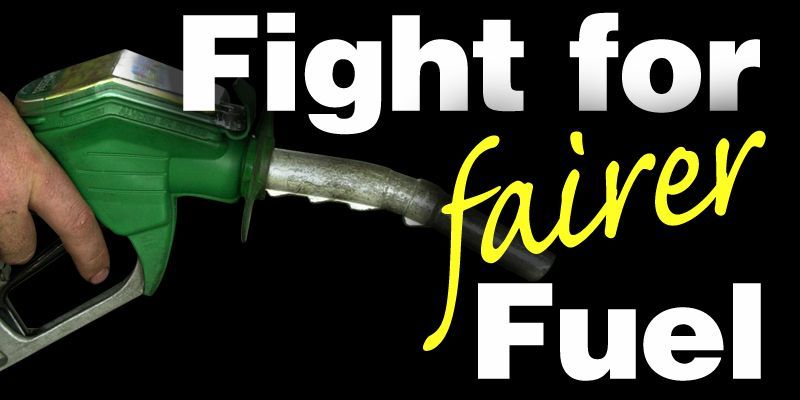Nine out of 10 Courier readers are worried about making ends meet amid rising fuel costs.
In total, 91% of all respondents345 peoplesaid they were worried about the cost of living and how they will make ends meet. Our survey revealed many are already making cutbacks.
Some 67% of respondents said they will spend less on entertainment while 41%four out of every 10 people in Courier countrywill have to cut back on their food shopping.
Richard Seward, of Lowson Terrace in Forfar, said the government should cut fuel duty and offset any losses by raising taxes on luxury items such as alcohol or cigarettes.
He said, “A fuel regulator would most likely force the government to increase supertax on traditional items like alcohol and cigarettes but that is preferable to making the poorest even poorer just by travelling to work.”
“The government could consider a minimum ‘travelling wage’ by which employers must increase wages by the price of bus travel each year.
“We have reached the tipping point where the benefits of living in the UK may soon be outweighed by its drawbacks.”
Brian Laird, Carseview Terrace, Forfar, said, “The decision makers in the government do not have a clue what it is like to live in a rural area on a minimum wage.”
Iain Hay, from Barry, said public transport is simply not an option. “I would consider public transport to and from work but when I tried it for two weeks the buses were late three times and did not turn up twice,” he said.
Susan Lawson, from Blairgowrie, said, “Over the last 15-20 years fewer and fewer farm jobs have had pay packages with the traditional tied cottages as part of the deal, so farmworkers have to rent or buy accommodation.
“As rural house prices are well above what a farmworker can pay, we have had to move into the town and travel to the countryside for work.
“We’ve been priced out of the countryside to liveare we going to be priced out of our jobs by high fuel prices?”
An exclusive survey of readers as part of our Fight For Fairer Fuel campaign has laid bare the full toll that soaring petrol and diesel costs are taking on people in Courier country.
It revealed that most drivers rely on their cars to get to and from work because there is no viable public transport alternative and that petrol price rises will cost them, on average, more than £500 extra a year.
And it also showed that most people lay the blame for the increase in fuel prices at the door of the coalition government, with most claiming politicians are out of touch with ordinary motorists, particularly those in rural communities who rely on their cars the most.
In all, 375 people responded to our survey and more than half of them (59%) said they spent up to £40 a week on fuel, a rise of £10 a week over the past 12 months.
Although motorists in the UK currently pay more than £1.30 a litre for petrol50p more than Americans donearly 200 respondents believed £1.10 a litre would be a fair price for fuel.
Nearly two-thirds (62%) of respondents said they had no alternative means of transport and rely on their cars for their commute to work and other necessities such as shopping.
One respondent, Philip de Felice, from Dundee, said public transport remains too expensive and too inconvenient. He said, “There are very few affordable alternatives to using my car, especially for longer journeys out of the city.
“The costs of trains is prohibitive and buses take too long. For example, the journey I make from my work to my girlfriend’s on a Friday evening takes around 1 hour and 15 minutes and costs about £22 by car. Using only public transport the same journey would cost about £30 and, door-to-door, take almost three hours.”
More than half of respondents believed the government should do more to promote greener forms of transport. But the biggest concern for nearly every single respondent was the current price of fuel.
